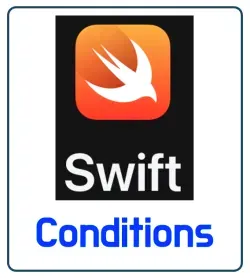🎲 9. Playing with Conditions (if statements)
Hello again! 😊Today, we’re going to learn about one of the most important tools in coding:
Conditional statements — also known as if statements.
An if statement lets you tell Swift:
“If something is true, do this. Otherwise, do something else!”
Just like how we talk in real life!
🧠 Reacting Differently Based on a Condition
With an if statement, you can make your program do different things depending on the situation.
For example:
“If the score is 90 or higher, show ‘Excellent!’”
“Otherwise, show ‘Good job!’”
That’s how a computer makes decisions using if.
Basic structure:
if condition {
// do this if the condition is true
} else {
// do this if the condition is false
}
🧪 Practice: Print a Message Based on Score
Let’s try writing a simple program that shows a message based on a test score!
let score = 85
if score >= 90 {
print("Excellent! Great job! 🎉")
} else if score >= 70 {
print("Nice work! Keep it up! 😊")
} else {
print("Good try! You can do even better! 💪")
}
Output:
Nice work! Keep it up! 😊Since score is 85, it matches the second condition score >= 70, so that message is shown!
🔍 What do if, else if, and else mean?
-
if → run this code if the condition is true
-
else if → if the first condition is false, check another condition
-
else → if none of the conditions are true, run this part instead
You can check for many situations using this structure!
💡 Challenge: Special Message for a Perfect Score
Can you write code that shows a special message
only when the score is exactly 100?
Hint:
if score == 100 {
print("Perfect score! Amazing! 🏆")
} else {
print("Great effort! Try for a perfect score next time! 💪")
}💡 == means “is equal to” in Swift. Be careful not to use just one =!
✨ Wrapping Up
Today, we learned how to use if statements in Swift!
-
if helps your program make decisions
-
You can do different things depending on the value
-
Great for creating smart, interactive apps!
In the next lesson, we’ll learn about functions,





댓글 쓰기